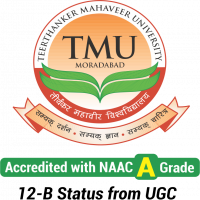Bachelor of Technology (B.Tech) Course: An Overview

Strong 8k brings an ultra-HD IPTV experience to your living room and your pocket.
The Bachelor of Technology (B.Tech) is one of the most sought-after undergraduate degrees in the field of engineering and technology. It is a professional degree awarded after the completion of a four-year program that provides students with a solid foundation in various aspects of engineering and technology. Here, we explore the structure, specializations, and career prospects associated with a B.Tech degree.
Structure of B.Tech Program
A B.Tech program typically spans over four years, divided into eight semesters. Each semester involves a mix of theoretical coursework, practical sessions, and project work. The curriculum is designed to impart both foundational knowledge and specialized skills in various engineering domains.
Year 1 and 2: Foundational Courses
The first two years focus on basic engineering principles and sciences. Students take courses in mathematics, physics, chemistry, and introductory engineering subjects. This phase ensures that all students, regardless of their chosen specialization, have a strong grounding in the fundamentals of engineering.
Year 3 and 4: Specialization and Advanced Topics
In the final two years, students choose their specialization and delve into advanced topics. The coursework becomes more focused, allowing students to gain in-depth knowledge in their chosen field. Practical labs, workshops, and project work are integral parts of these years, helping students apply theoretical knowledge to real-world problems.
Specializations in B.Tech
B.Tech programs offer a wide range of specializations to cater to the diverse interests and career aspirations of students. Some of the popular specializations include:
Computer Science and Engineering (CSE)
Focuses on software development, algorithms, computer networks, and artificial intelligence.
Electronics and Communication Engineering (ECE)
Covers topics such as electronic circuits, communication systems, signal processing, and telecommunications.
Mechanical Engineering
Involves the study of mechanics, thermodynamics, materials science, and manufacturing processes.
Civil Engineering
Focuses on construction, design, and maintenance of infrastructure such as roads, bridges, and buildings.
Electrical Engineering
Deals with electrical circuits, power systems, control systems, and electronics.
Information Technology (IT)
Similar to CSE but with a stronger emphasis on the application of computer technology to solve business problems.
Chemical Engineering
Involves the application of chemical processes in industries, including production, design, and operation of chemical plants.
Biotechnology
Combines biological sciences with engineering principles to innovate in areas like genetic engineering and pharmaceuticals.
Admission Process
Admission to B.Tech Course is typically competitive and based on entrance examinations. Some of the prominent entrance exams include:
Joint Entrance Examination (JEE) Main and Advanced: Conducted for admission to prestigious institutions like the Indian Institutes of Technology (IITs) and National Institutes of Technology (NITs) in India.
State-Level Entrance Exams: Such as the MHT-CET in Maharashtra, KCET in Karnataka, and others.
University-Specific Exams: Institutions like VIT, SRM, and BITS Pilani conduct their own entrance tests.
Career Prospects
A B.Tech degree opens up numerous career opportunities in various sectors. Graduates can find employment in industries such as:
Information Technology (IT) and Software Development: Roles include software developer, system analyst, data scientist, and cybersecurity expert.
Core Engineering: Positions in manufacturing, construction, electronics, and automotive industries as design engineers, production managers, and quality control engineers.
Research and Development: Opportunities in government and private research organizations.
Public Sector and Government Jobs: Through exams conducted by UPSC, SSC, and other public service commissions.
Additionally, many B.Tech graduates opt for higher studies, such as Master of Technology (M.Tech), Master of Business Administration (MBA), or pursue research through Ph.D. programs.
Conclusion
The B.Tech degree is a versatile and comprehensive program that equips students with the necessary skills and knowledge to excel in various engineering fields. Its robust curriculum, combined with hands-on experience and specialization options, makes it a valuable stepping stone for a successful career in technology and engineering. Whether entering the workforce or continuing with higher education, B.Tech graduates are well-prepared to meet the challenges of a rapidly evolving technological landscape.
Note: IndiBlogHub features both user-submitted and editorial content. We do not verify third-party contributions. Read our Disclaimer and Privacy Policyfor details.


